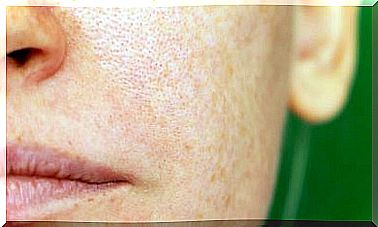How Does Screen Use Affect Eye Health?
Spending a long time in front of the screen can be very harmful to the eyes. Learn more about this topic in our article today.

In the field of ophthalmology, more and more studies are looking into the extent to which screen use affects eye health. The reason for this is that more and more people are suffering from eye diseases that can be traced back to the use of electronic devices.
This is how the term Computer Vision Syndrome came about. This occurs when one is exposed to a screen for more than three hours a day, the recommended brightness of the device is exceeded and the distance between the screen and eyes is not large enough.
As we know all too well, screens are essential in our everyday lives. We use televisions, tablets, cell phones, computers and even modern kitchen appliances have built-in screens. Our eyes have to strain constantly to focus on these devices.
Cell phones strain the eyes particularly hard, especially if we hold them very close, binocular eyesight is strained.
When we stare at a screen for an extended period of time, our eyelids move up to 30% less than normal. As a result, the lacrimal glands produce less fluid, which leads to dry eyes.
Find out today how screen usage affects eye health. We also have some tips for you to reduce the consequences as much as possible.
Symptoms related to screens
Once we understand how screen use affects eye health, the symptoms associated with it seem logical. They are signs of eye fatigue from excessive exertion.
The most common symptoms of Computer Vision Syndrome include:
- You see blurred or double: The medical term for this is diplopia.
- Foreign body sensation in the eye: This leads to severe itching.
- Red eyes: These are caused by the irritation and inflammation of the eye.
- Pain inside the eye
- Severe headache: The headache is caused by eye fatigue, but also by the position of the head while using the cell phone.

How does screen usage affect eye health?
The use of screens unconsciously sets a number of mechanisms in motion. We unconsciously change certain habits and functions in order to adapt to the electronic devices.
One of the most important questions to ask when it comes to eye health and screens is focus. When our eyes are relaxed, they can easily focus at long distances. However, when they have to focus on something that is near us, a compensation mechanism is set in motion that requires a certain amount of effort. This adaptation leads to fatigue.
While using the screen, we have to concentrate and keep our eyes open longer and blink less often. We normally blink 15 to 20 times per minute when staring at a screen, but only 3 times.
Then there is the strong blue light radiation. This blue light is a fragment of the light spectrum that penetrates our retina and can reach the macula, which is damaged over time as a result.
The blue light from the screens and eye health
The blue light emanating from the electronic screens has advantages and disadvantages. Thanks to the blue light, the devices consume less electricity, but at the same time this light is dangerous for the health of our retinas.
The sun also emits blue light, which is why our eyes are familiar with it from the first days after we are born. The problem is that the distance between the blue light from the screens and our eyes is much smaller and that is exactly what causes the damage.
Physically, the blue light is a short wave with a lot of energy. Therefore , the eyes have to strain to focus on it.

Tips to counteract damage caused by screen use
You can incorporate a few simple steps into your daily life to help prevent the negative effects of screen use on eye health:
- Rest your eyes : People who work on the computer should definitely give their eyes a break every now and then. Take your eyes off the screen for at least seconds every twenty minutes.
- Maintain a healthy distance from the devices: The distance between the screen and our eyes should be at least 60 centimeters. Larger screens, such as the television, should be at least 2 meters away.
- Blinking: When working on a screen, force yourself to blink. Because with it you promote the flow of tears and moisten the eye.
- Good lighting: Using electronic devices in low light is counterproductive. Our eyes have to work harder and the effect of the screen radiation on our retina is intensified.
In our modern world we cannot do without screens. We therefore recommend that you follow our tips in order to minimize the harmful effects of screen use.









